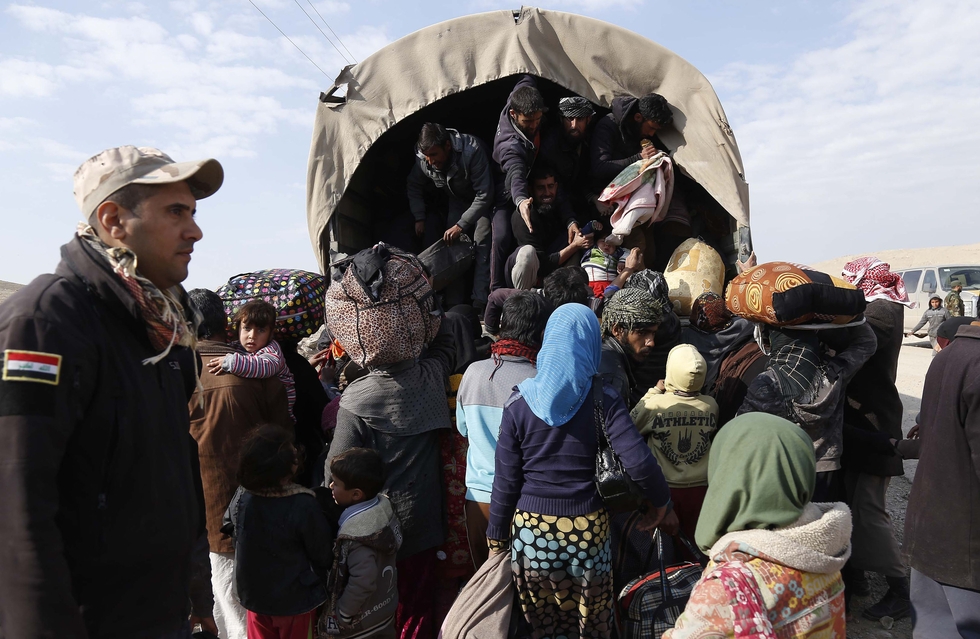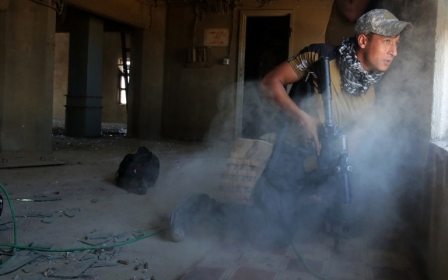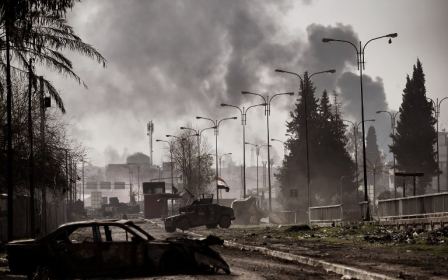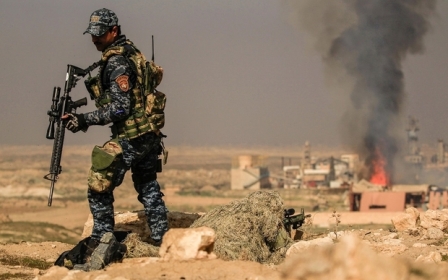Iraq paramilitaries say mass grave of hundreds found near Mosul

Iraqi paramilitary forces announced Saturday that they had discovered a mass grave at Badush prison near Mosul containing the remains of hundreds of people executed by the Islamic State (IS) group.
IS reportedly killed up to 600 people after seizing the jail in 2014, and was also said to have held hundreds of kidnapped women from Iraq's Yazidi minority at the facility.
The Iraqi military said that forces from the Hashed al-Shaabi, an umbrella group of pro-government forces that are dominated by Iran-backed Shiite militias, were among the units that recaptured the prison from IS militants.
Hashed forces found "a large mass grave containing the remains of around 500 civilian prisoners in [Badush] prison who were executed by [IS] gangs after they controlled the prison during their occupation of Mosul," they said.
The Hashed did not say how they reached that figure, which could not be independently confirmed, but it is in keeping with a Human Rights Watch (HRW) report of IS killings at Badush.
According to HRW, IS gunmen executed up to 600 inmates from Badush prison on 10 June, 2014, forcing them to kneel along a nearby ravine and then shooting them with assault rifles.
Iraqi lawmaker Vian Dakhil also said that year that IS was holding more than 500 Yazidi women at Badush.
The Badush site is not the first mass grave to be found during the Mosul campaign, in which Iraqi forces recaptured areas around the country's second city before battling IS inside it.
Iraqi forces found one in the Hamam al-Alil area south of Mosul in November that an official said appeared to hold the remains of at least 25 bodies.
And earlier this year, Iraqi forces retook an area containing a sinkhole known as the Khasfah, which could be the largest mass grave of the war with IS.
Local residents said that IS used it as an execution site and a mass grave where they would dispose of victims.
HRW examined satellite imagery that suggested the sinkhole was filling up, and local residents told AFP that IS had piled rusted car parts and shipping containers into it, before bulldozing earth on top.
IS targeted the Yazidi religious minority in a campaign of executions, kidnapping and rape, killing men and holding women and girls as sex slaves.
IS overran large areas north and west of Baghdad in 2014. Iraqi forces backed by US-led air strikes have since regained most of the territory they lost.
Iraqi forces launched an operation to retake Mosul, the last IS-held city in Iraq, in October, recapturing its eastern side before setting their sights on its smaller but more densely populated west.
Middle East Eye propose une couverture et une analyse indépendantes et incomparables du Moyen-Orient, de l’Afrique du Nord et d’autres régions du monde. Pour en savoir plus sur la reprise de ce contenu et les frais qui s’appliquent, veuillez remplir ce formulaire [en anglais]. Pour en savoir plus sur MEE, cliquez ici [en anglais].




